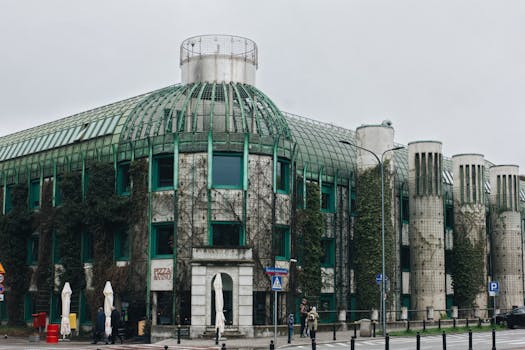
Sustainable Cities: How Europe is Shaping Eco-Friendly Lifestyles by 2025
Sustainable Cities: How Europe is Shaping Eco-Friendly Lifestyles by 2025. As the world grapples with the challenges of climate change, environmental degradation, and social inequality, the concept of sustainable cities has become a pressing concern. In Europe, many cities are taking bold steps to reduce their environmental footprint, promote eco-friendly lifestyles, and create a better quality of life for their citizens. In this article, we will explore the initiatives being implemented in European cities to shape sustainable and eco-friendly lifestyles by 2025.
Introduction to Sustainable Cities
The concept of sustainable cities is based on the idea of creating urban environments that are environmentally friendly, socially just, and economically viable. This requires a holistic approach that takes into account the social, economic, and environmental dimensions of urban development. European cities are at the forefront of this movement, with many cities implementing innovative solutions to reduce their carbon footprint, promote green spaces, and enhance the quality of life for their citizens.
Green Initiatives in European Cities
Many European cities are implementing green initiatives to reduce their environmental impact. For example, Copenhagen has set a goal to become carbon neutral by 2025, while Stockholm has implemented a congestion tax to reduce traffic and promote the use of public transport. Other cities, such as Barcelona and Amsterdam, are investing in green infrastructure, including parks, green roofs, and green walls, to mitigate the urban heat island effect and improve air quality.
Sustainable Transportation in European Cities
Sustainable transportation is a key component of sustainable city development. Many European cities are investing in green transportation systems, including electric and hybrid buses, trams, and trains. Cities like Vienna and Zurich are also promoting cycling and walking, with dedicated bike lanes and pedestrianized zones. Additionally, many cities are implementing smart traffic management systems to reduce congestion and promote the use of public transport.
Energy Efficiency in European Cities
Energy efficiency is another critical aspect of sustainable city development. Many European cities are implementing measures to reduce energy consumption, including the use of LED lighting, energy-efficient buildings, and district heating systems. Cities like Berlin and Paris are also promoting the use of renewable energy sources, such as solar and wind power, to reduce their dependence on fossil fuels.
Waste Management in European Cities
Waste management is a significant challenge in many European cities. However, many cities are implementing innovative solutions to reduce waste and promote recycling. For example, cities like Milan and Copenhagen are implementing waste-to-energy systems, while others, such as Hamburg and Munich, are promoting composting and recycling programs.
Conclusion
In conclusion, European cities are leading the way in sustainable city development, promoting eco-friendly lifestyles and reducing environmental impact. By implementing green initiatives, investing in sustainable transportation, promoting energy efficiency, and implementing effective waste management systems, European cities are creating a better quality of life for their citizens and contributing to a more sustainable future.





